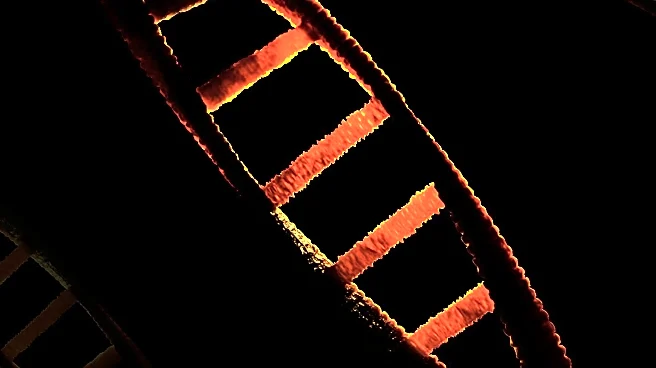What's Happening?
A comprehensive study has been conducted to analyze RNA expression signatures associated with cancer tissue architecture across multiple cancer types. Researchers applied non-negative matrix factorization
to expression data from 593 genes related to cancer tissue architecture (CTA) across 28 cancer types using the Cancer Genome Atlas Project dataset. This analysis identified seven distinct CTA signatures, with a fibrous collagen-related signature being a universal feature of cancer. The study also found that signatures related to cell-cell or cell-stroma adhesion were highly tissue-specific. These findings were validated using various data sources, including Pan-Cancer Analysis of Whole Genomes data and spatial transcriptomics. In renal cell carcinoma, a strong correlation was observed between network-forming collagen and patient survival, suggesting that perturbation of this collagen promotes tumor growth.
Why It's Important?
This study provides significant insights into the pathological features of cancer by identifying distinct RNA expression signatures linked to cancer tissue architecture. Understanding these signatures can help in developing targeted therapies and improving patient outcomes. The identification of universal and tissue-specific signatures could lead to more personalized treatment approaches, potentially enhancing the effectiveness of cancer therapies. Additionally, the correlation between collagen networks and patient survival in renal cell carcinoma highlights the potential for new therapeutic targets. This research underscores the importance of integrating genetic and molecular data to better understand cancer mechanisms and improve treatment strategies.











